 | TODAY IN SCIENCE HISTORY NEWSLETTER - 15 MAY |
| Feature for Today |
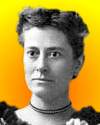 On 15 May 1857, Williamina Paton Fleming was born, the Scottish-American astronomer who progressed from being a maid for Prof. Edward Pickering, to an assistant in clerical and computational work, and to a pioneer in the classification of stellar spectra. On 15 May 1857, Williamina Paton Fleming was born, the Scottish-American astronomer who progressed from being a maid for Prof. Edward Pickering, to an assistant in clerical and computational work, and to a pioneer in the classification of stellar spectra.She trained other women to do mathematical calculations, who were known as the Harvard Computers (and sometimes less flatteringly as Pickering's Harem). This Obituary of Williamina Paton Fleming was written by Annie Jump Cannon, a Harvard Computer, who learned the skills from Fleming, and made significant contributions to the classification of stars in her own right. |
| Book of the Day | |
| |
| Quotations for Today | |
 | "It can even be thought that radium could become very dangerous in criminal hands, and here the question can be raised whether mankind benefits from knowing the secrets of Nature, whether it is ready to profit from it or whether this knowledge will not be harmful for it. The example of the discoveries of Nobel is characteristic, as powerful explosives have enabled man to do wonderful work. They are also a terrible means of destruction in the hands of great criminals who lead the peoples towards war. I am one of those who believe with Nobel that mankind will derive more good than harm from the new discoveries." |
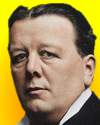 | "It appears, nevertheless, that all such simple solutions of the problem of vertebrate ancestry are without warrant. They arise from a very common tendency of the mind, against which the naturalist has to guard himself,—a tendency which finds expression in the very widespread notion that the existing anthropoid apes, and more especially the gorilla, must be looked upon as the ancestors of mankind, if once the doctrine of the descent of man from ape-like forefathers is admitted. A little reflexion suffices to show that any given living form, such as the gorilla, cannot possibly be the ancestral form from which man was derived, since ex-hypothesi that ancestral form underwent modification and development, and in so doing, ceased to exist." |
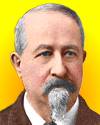 | "Each volcano is an independent machine—nay, each vent and monticule is for the time being engaged in its own peculiar business, cooking as it were its special dish, which in due time is to be separately served. We have instances of vents within hailing distance of each other pouring out totally different kinds of lava, neither sympathizing with the other in any discernible manner nor influencing other in any appreciable degree." |
| QUIZ | |
| Before you look at today's web page, see if you can answer some of these questions about the events that happened on this day. Some of the names are very familiar. Others will likely stump you. Tickle your curiosity with these questions, then check your answers on today's web page. | |
| Births | |
 |  A French physical chemist, born 15 May 1859 was a cowinner of the Nobel Prize for Physics in 1903. He and his wife discovered radium and polonium in their investigation of radioactivity. A French physical chemist, born 15 May 1859 was a cowinner of the Nobel Prize for Physics in 1903. He and his wife discovered radium and polonium in their investigation of radioactivity. What is the name of this man? What is the name of this man? |
| Deaths | |
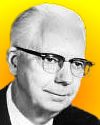 |  Robert Morris Page (1903-1992) was an American physicist who was a radio pioneer but also who made outstanding contributions to the work done at the U.S. Naval Research Laboratory in the years prior to World War II. His invention was vital to the Allies during World War II for detecting enemy planes, ships, and other targets. Page continued research after the war in peacetime applications. Robert Morris Page (1903-1992) was an American physicist who was a radio pioneer but also who made outstanding contributions to the work done at the U.S. Naval Research Laboratory in the years prior to World War II. His invention was vital to the Allies during World War II for detecting enemy planes, ships, and other targets. Page continued research after the war in peacetime applications. To what technology did he contribute? To what technology did he contribute? |
| Events | |
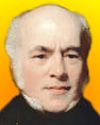 |  In 1836, Francis Baily observed "Baily's Beads." After retiring in 1825 from a successful business career, Baily turned to science. He revised several star catalogs, and repeated Henry Cavendish's experiments to determine the density of the Earth. In 1836, Francis Baily observed "Baily's Beads." After retiring in 1825 from a successful business career, Baily turned to science. He revised several star catalogs, and repeated Henry Cavendish's experiments to determine the density of the Earth. What phenomenon is known as Baily's Beads? What phenomenon is known as Baily's Beads? |
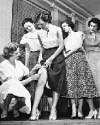 |  In 1940, nylon stockings went on sale for the first time in the United States in Wilmington, Delaware. They were an immediate hit. A remarkable number were sold in several hours. In 1940, nylon stockings went on sale for the first time in the United States in Wilmington, Delaware. They were an immediate hit. A remarkable number were sold in several hours. How many stockings sold in these first several hours? How many stockings sold in these first several hours? |
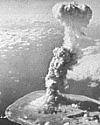 |  In 1957, a nation's first H-bomb was exploded in the air off Christmas Island in the central Pacific Ocean. In 1957, a nation's first H-bomb was exploded in the air off Christmas Island in the central Pacific Ocean. What was the nation? What was the nation? |
| Answers |
When you have your answers ready to all the questions above, you'll find all the information to check them, and more, on the May 15 web page of Today in Science History. Or, try this link first for just the brief answers. Fast answers for the previous newsletter for May 14: The Eightfold Way (after Buddha's Eightfold Path to Enlightenment and bliss); adsorption chromatography; William P. Lear; "57 Varieties"; the decade including the year 1856; Edward Jenner; Vaseline. |
| Feedback |
 If you enjoy this newsletter, the website, or wish to offer encouragement or ideas, please send feedback by using your mail reader Reply button. If you enjoy this newsletter, the website, or wish to offer encouragement or ideas, please send feedback by using your mail reader Reply button. |
--
If you do not want to receive any more newsletters, Unsubscribe
To update your preferences and to unsubscribe visit this link


Δεν υπάρχουν σχόλια:
Δημοσίευση σχολίου